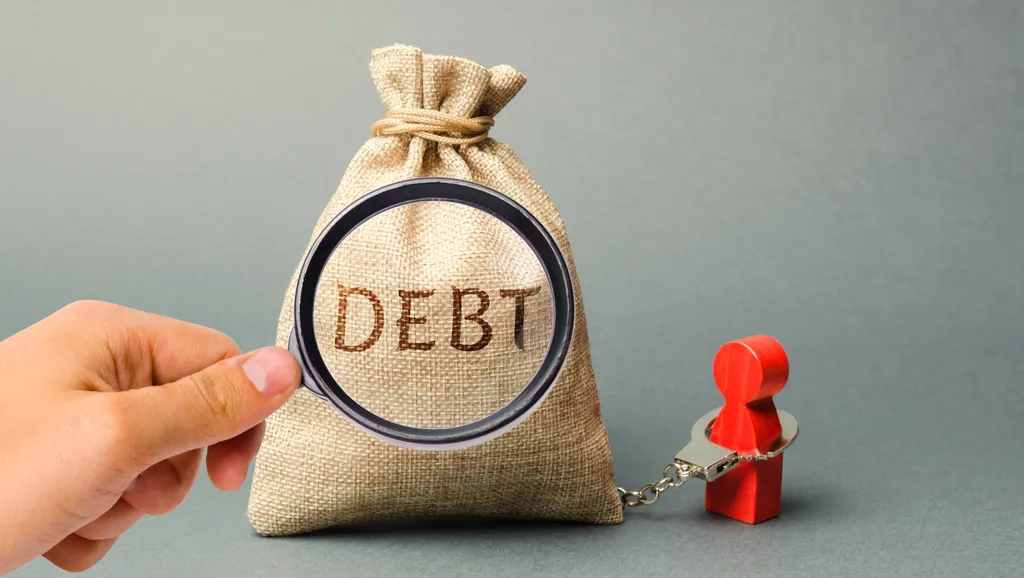Introduction
The importance of financial literacy can’t be stressed enough in a world where money choices affect every part of our lives. We can make smart choices about our budgets and find our way around the complicated world of investments if we know how to handle our money well. This will help us have a safe and stable future. It is an important skill that helps people become financially independent and gives them a sense of power.
Why Financial Literacy Matters
There are many reasons for the importance of financial literacy:
Informed Decision Making:
People who know about money can make smart choices about stocks, loans, and other money-related activities. It gives them the information to weigh their choices and pick the best one that meets their needs.
Debt Management:
Knowing about money helps people handle their bills better. They can devise a way to pay their bills and avoid a debt trap.
Savings and Investments:
People who know much about money are more likely to save and spend it wisely, which helps them reach their short- and long-term financial goals.
Financial Independence:
People can become financially independent if they know how money works. They can make plans for their retirement, take care of their families, and live a safe financial life.
Economic Stability:
In a broader sense, knowing about money helps keep the economy stable. When more people know how to handle their money, economies are healthier because more people save and spend.
Key Components of Financial Literacy
Financial knowledge includes several important things, such as:
Budgeting:
A big part of being financially literate is knowing how to make and stick to a budget. Making a budget helps people live within their means and save for the future by keeping track of their income and spending.
Understanding Interest:
It’s important to understand interest, especially regarding loans and credit cards. People can make better borrowing choices and understand the long-term effects of debt if they understand how interest works.
Investing:
It is knowing the investments you can make and how risk and return work. People who know this can reach their financial goals and build wealth over time.
Insurance:
A big part of being financially literate is knowing what insurance is for, how it works, and why you need it. People can protect themselves against losing money by knowing this.
Tax Planning:
People can make the most of their money by learning the basics of taxes, like how to file a tax return and the effects of different tax tactics.
Retirement Planning:
Financial literacy includes knowing pension schemes, 401(k) accounts, and other retirement savings choices. It prepares them for a secure retirement.
Navigating the World of Credit
Knowing about credit and how it affects finances is another important part of being financially literate. Here are some important things to think about:
Understanding Credit Scores:
Credit scores are based on credit history and indicate creditworthiness. Lenders use it to measure loan risk. Understanding how your credit score is calculated can help you maintain or enhance it.
Credit Cards:
Credit cards can help establish credit if managed properly. Understanding interest calculations and the consequences of not paying your debt in full each month is key.
Revolving vs. Installment Credit:
Installment credit, like a vehicle loan or mortgage, requires regular payments over time, while revolving credit, like a credit card, can be used and repaid. Understanding the differences and how they affect credit scores is crucial.
Debt-to-Income Ratio:
Lenders use this ratio to determine if you can pay back your bills by comparing your total debt to your total income. A smaller ratio means that your finances are in better shape.
Impacts of Late Payments:
If you miss or pay late, it can greatly hurt your credit score. You should know what will happen and devise ways to avoid it, like making payments automatically.
Checking Credit Reports:
If you look over your credit record often, you can find any mistakes or signs of fraud. You must know how to read these reports to keep your credit healthy.
Responsible Borrowing:
Understanding your budget, avoiding overextending yourself, and knowing the terms of any loan agreement are all part of responsible borrowing. It’s essential for credit wellness.
If you use credit wisely, you may get better interest rates and terms when borrowing money for big purchases like a house or car.
Investment Basics
Putting your money into investments can help you get richer over time. But before you start, it’s important to know the big picture. Here are some important things to think about:
Understanding Risk and Reward:
The chance of getting more money back comes with a bigger risk. On the other hand, investments with less risk tend to have smaller returns. When picking purchases, it’s important to understand this trade-off.
Diversification:
This approach involves putting your money into many assets to lower risk. If one investment doesn’t do well, others may make up for it better.
Compound Interest:
This is the interest that was calculated on both the initial investment and the interest that had been earned in earlier periods. The value of your investment can grow significantly over time, thanks to compound interest.
Investment Time Horizon:
This refers to how long you plan to keep an investment before leaving it. The amount of time you have to invest can greatly affect how you invest and what kinds of purchases you make.
Asset Allocation:
Putting your money into different types of assets, like stocks, bonds, and cash equivalents, is called diversification. Your risk tolerance and investment time frame should affect how you divide your assets.
Research Before Investing:
Knowing what you are engaging in is important before you invest money. This can include monitoring market trends, reading financial news, and studying company reports.
Patience and Discipline:
The process of investing lasts a long time. The key to successful investing is patience, discipline, and avoiding market noise.
Importance of Financial Literacy in Everyday Life
Being financially literate is more than just being able to balance your books and choose investments. It affects every part of our daily lives. How to do it:
Budgeting:
If you know about money, you can make a good budget that keeps track of your income and expenses. This makes saving money easier and stopping spending it on things you don’t need.
Debt Management:
Knowing your interest rates and when your payments are due can help you handle your debt better and avoid getting stuck in a loop of never-ending payments.
Planning for the Future:
Being financially literate helps you make smart choices about how much to save and spend, whether getting a new car, a house, or planning retirement.
Understanding Insurance:
Financial literacy helps you understand the terms of your policy, what it covers, and how premiums are calculated. This is true whether you have health, life, or car insurance.
Financial Independence:
When you know about money, you can see how to be financially independent. It lets you make choices that will help you get richer and feel less stressed about money.
Consumer Awareness:
Knowing about money helps you know your rights as a customer, which keeps you safe from scams and unfair lending practices.
Educational Initiatives for Financial Literacy
Many groups and institutions worldwide are working on different projects to help people learn about money. These are some of the most important ones:
School-based Financial Education:
Some schools teach students about money as part of their regular lessons so that they learn important money skills early on.
Community Workshops:
It is common for non-profits and credit counseling services to hold classes and seminars in the community to teach people useful money skills.
Online Courses:
Many websites let people learn about money for free or at a low cost, and they can do it at their own pace.
Government Programs:
Governments worldwide have programs that teach people about money so they can make smart decisions about their money.
Financial Literacy Campaigns:
People learn more about the importance of understanding money through these efforts, which often offer resources and tools to help people manage their money well.
Overcoming Common Barriers to Financial Literacy
Lack of Access to Information:
You can get around this problem by using the internet, libraries, and free tools from different groups that teach people about money. A lot of banks and credit unions also have helpful educational tools.
Limited Financial Education:
This problem can be fixed by putting money into learning about personal finance, either by doing it yourself or taking classes. Find free choices at community centers, schools, or online.
Complex Financial Terminology:
Spend some time getting to know basic money words and ideas. Online financial definitions and glossaries can be very helpful if you want to start.
Time Constraints:
You can set aside a short time daily to learn about money. There are a lot of tools, like podcasts, mobile apps, and short online courses, that let you learn in small chunks.
Fear or Intimidation:
Start simple and progress to more advanced themes as you gain confidence. Joining a group of like-minded learners or finding a mentor can lessen fear and make learning fun.
Importance of Financial Literacy in Measuring Success
Evaluating their performance is important to ensure that financial literacy programs are meeting their goals. Here are some important things to think about:
Pre- and Post-Test Assessments:
The assessments assess financial literacy before and after financial literacy training. High post-test scores imply that the training enhanced financial literacy.
Behavioral Changes:
Changing how people handle their money is another way to measure success. For example, do people participating in the program save more, pay off their debt, or make smarter business choices afterward?
Confidence in Financial Decision Making:
A good sign of better financial knowledge is having more faith in your money decisions. Surveys or conversations can be used to find out more about this.
Long-term Financial Health:
Long-term financial health is one of the best ways to see how well someone can handle money. This includes things like higher net worth, safe retirement planning, and less stress about money for members.
Feedback from Participants:
Feedback from participants can tell you a lot about how they feel about the program and how it changed their financial information and skills. You can get this information from reviews, polls, or focus groups.
Conclusion
Last but not least, the importance of financial literacy should be stressed more. It’s an important skill that affects every part of our lives, from small everyday tasks to big cash choices. It gives people the courage and knowledge to handle the complicated world of finance, which leads to financial independence and protection against financial problems. Finally, becoming financially literate takes lifelong learning and flexibility, but the benefits are worth it.
Frequently Asked Questions (FAQs)
Q1: What is financial literacy?
Financial literacy includes budgeting, investing, managing personal finances, and planning. You need the skills and information to make smart financial decisions.
Q2: What is the importance of financial literacy?
Financial education helps people manage their money, plan for the future, understand investment and savings possibilities, and avoid financial mistakes.
Q3: How can technology aid financial literacy?
Mobile apps, online learning platforms, gamification, virtual reality, and AI can make financial tools and education accessible to more people.
Q4: What role do employers play in promoting financial literacy?
Employers can promote financial literacy by offering financial education, financial advisers, retirement plans, savings culture, and financial wellness as part of overall wellness.
Q5: How can the success of a financial literacy program be measured?
Pre- and post-test evaluations, financial behavior improvements, financial decision-making confidence, long-term financial health, and participant feedback can measure a financial literacy program’s success.





